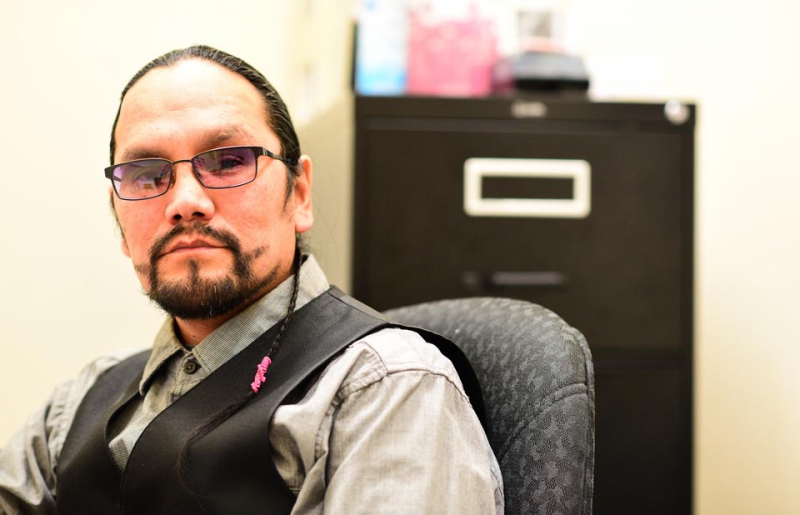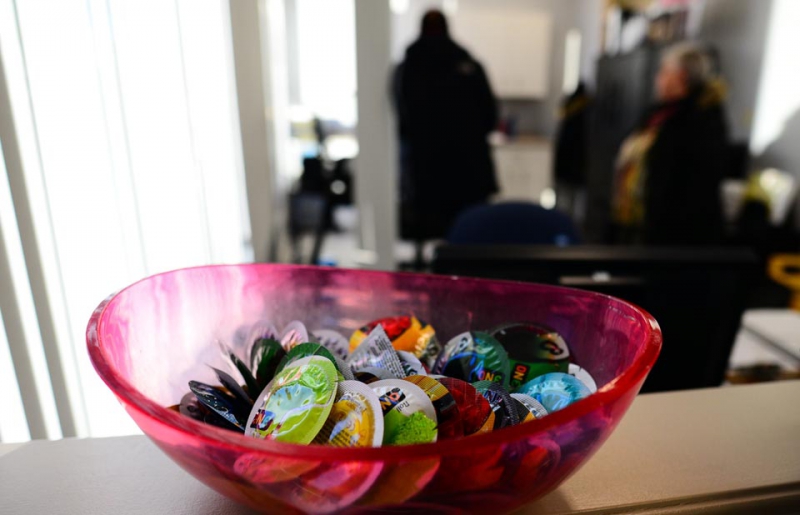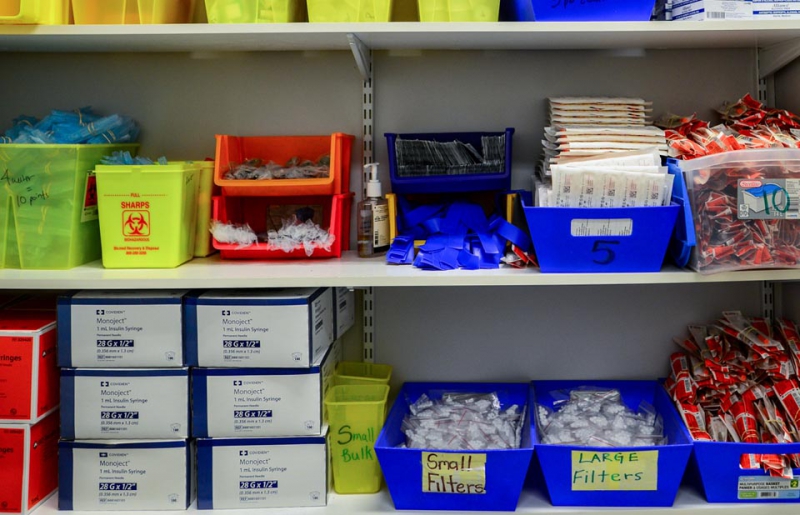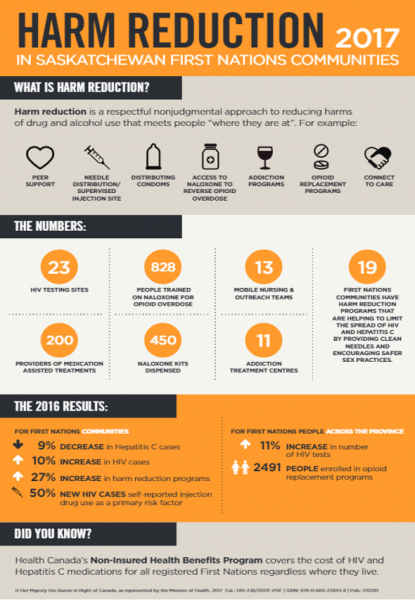The biggest question I always ask clients is, "Are you willing to change?". Charles describes his role at the Saskatoon Tribal Council Health Centre as "here to help". "We have the resources that can and will help, if and when people want and need them. I know where to point people to for housing, food and shelter. If they want detox, I know where to go—I’m very familiar with the treatment centres and I’m very familiar with the treatment cycle."
Charles is an addictions counsellor at the centre and is himself a former addict.

After almost 16 years as an alcoholic, and six years using drugs, Charles understands the issues first-hand. Charles is particularly aware of the challenges his clients endure as single parents. A single father of three, his deteriorating relationship with his children was the catalyst for him to seek help. "I didn’t really realize I had a problem, because it was so normalized. Alcohol was normal, drugs were normal, it was all normal. I went to treatment in 2007. But I knew it would be a struggle to get out."

Saskatoon is the largest city in the Canadian province of Saskatchewan, a province where young indigenous people are more likely to end up in jail than to graduate from high school and suicide rates are five to seven times higher than among the nonindigenous population. There are high rates of drug and alcohol addiction and complex mental health conditions.
HIV and tuberculosis (TB) are also major health concerns among many indigenous communities. Among First Nations people in Saskatchewan, TB is 31 times the national average and the HIV rate is 11 times the national rate. Around 50% of HIV infections are through injecting drug use.
There are also high levels of stigma and discrimination in the mainstream health-care system, which is why the Saskatoon Tribal Council Health Centre is an important link to health care that the clients feel safe accessing.

At the clinic, Charles sees around six to 18 people a day. His clients come from all over the Saskatoon area, from different backgrounds and different ethnicities, with ages ranging from 18 to 60 years.
"Each and every one of them has a problem with alcohol and drugs. They come from poverty, from homelessness. They can be street people and come from very intense backgrounds. Their stories are unique, sometimes devastating to the core in terms of what they have been exposed to. But they all share one thing, they’re here because they trust us."

The centre is open 365 days a year offering health and support services. The centre offers a needle and syringe programme, providing people with sterile injecting equipment to ensure that people who inject drugs do not share syringes and needles. The clinic also offers a safe space for clients to dispose of used needles and syringes. The centre gets through more than 1.5 million sterile needles every year and has a growing client base of 2600 people, with more joining every day.

The Saskatoon Tribal Council is tackling a chronic drug and mental health crisis among indigenous people. The main objective of the centre is that it is a comprehensive, multidisciplinary drop-in clinic at the heart of Saskatoon’s low-income neighbourhoods, providing a wide range of services to treat HIV and other sexually transmitted infections and hepatitis C, particularly for people of aboriginal ancestry.

The Saskatoon Tribal Council Centre is much more than just a place to get sterile needles. It is a hub, an important centre for resources and connections, a safe space and discrimination-free zone to go for help and advice. It is somewhere clients know they will be welcomed with a warm smile, a hot drink and something to eat. Staff member Twila sums it up, "People need us, and we’re making a difference."
The 61st session of the Commission on Narcotic Drugs (CND) is taking place in Vienna, Austria, from 12 to 16 March 2018. The CND is the United Nations organ with prime responsibility for drug control. In line with its mandates, the CND monitors the world drug situation, develops strategies on international drug control and recommends measures to address the world drug problem.
UNAIDS urges all countries to adopt a people-centred, public health and human rights-based approach to drug use and for alternatives to the criminalization and incarceration of people who use drugs. Evidence shows that harm reduction approaches such as the Saskatoon needle–syringe programme reduce the health, social and economic harms of drug use to individuals, communities and societies. They do not cause increases in drug use. UNAIDS urges all countries to ensure that people who inject drugs have access to harm reduction services, including needle–syringe programmes and opioid substitution therapy.








